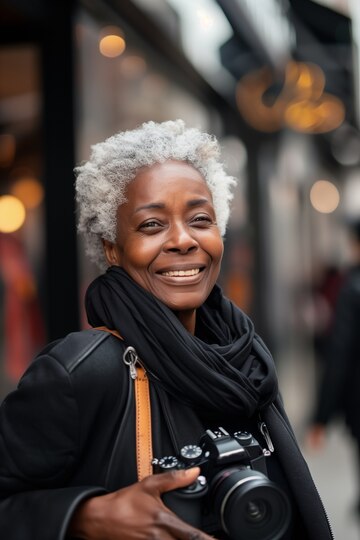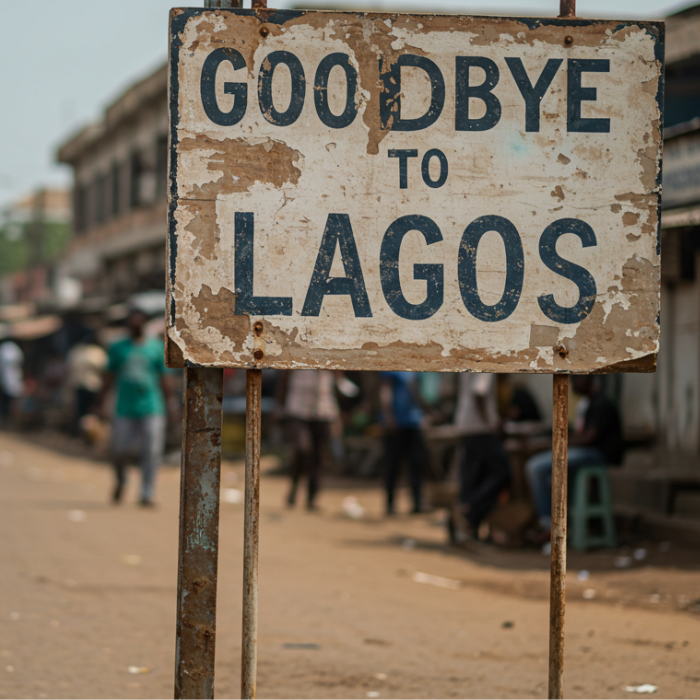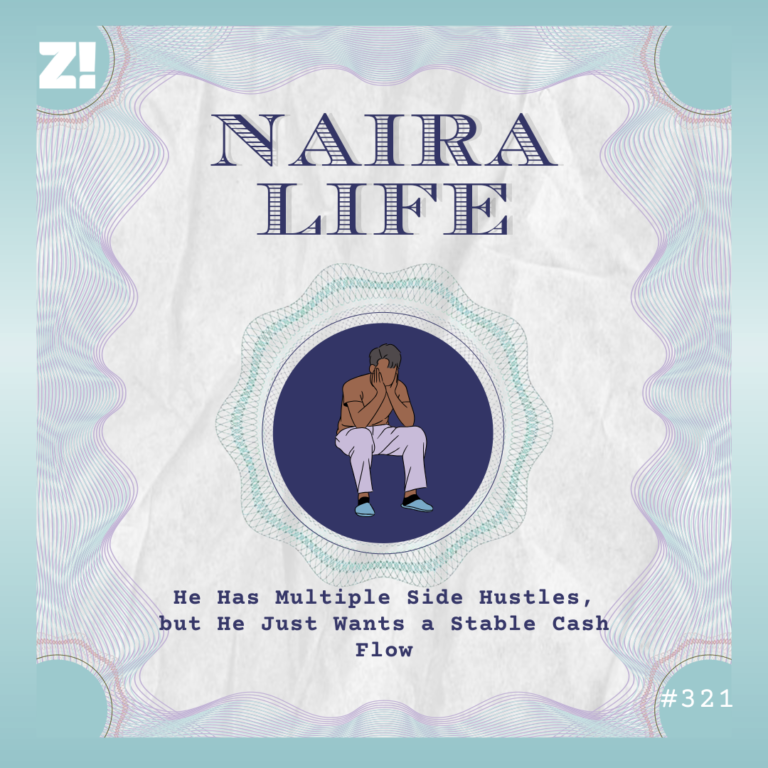Christiana* (62) first left Nigeria in 1990 after her marriage broke down, but she always planned to return home. She finally returned in 2022 but left again after eight months. Why?
As told to Boluwatife

Image by Freepik
I left Nigeria at a time when it wasn’t really popular to relocate.
I probably wouldn’t have left if things hadn’t happened the way they did. In 1989, I was married with two children under three years old and had a good job as a clerk in a popular law firm in Nigeria. Everything was great.
Then, my marriage fell apart. If I were completely honest, it had started to fail right from the start.
My ex-husband, Dapo*, was a serial cheat, and his family hated me. They never hid it, and I honestly can’t remember why I still went ahead with the marriage. Maybe I thought our love would conquer all — make him faithful and get his family’s approval.
Well, Dapo cheated again that year, but instead of pleading after I caught him, he beat me up and asked what right I had to question him. When I reported to his mother, she told me to stop broadcasting my marital issues everywhere.
My family came to bundle me away after they learnt of the beating, and Dapo didn’t come to beg or explain. My best friend worked at the British embassy then, and she convinced me to relocate to the UK to start my life afresh. She had an aunty who could help me get back on my feet.
So, in 1990, I arrived in London with two children and no idea what I wanted to do with my life.
London saved my life. The stress and pressure from working two jobs didn’t give me the luxury of time to think about Dapo or cry about the fact that I was only 28 but was already a single mother of two.
I experienced mildly racist remarks a lot in those early days. My accent was still very noticeably Nigerian in those early days, and the shoppers at my department store job often threw weird glances at me when I spoke or asked me to repeat myself with their fake concerned “What did you say, love?” questions. All while going behind to report me to my manager for being difficult to understand.
But I had a focus. I needed to work myself to the bones to forget my loneliness and make enough money to create a good life for my children. A big part of my plan was also to return to Nigeria as a richer, wiser woman and show Dapo and his family exactly what they had lost.
That plan changed over the years. I made reasonable money and was able to provide good lives for my children. I even bought a house outside London in 2005, but Dapo stopped being the reason why I wanted to return to Nigeria. I heard he’d remarried, and I gradually lost interest in “showing him.”
I wanted to return to Nigeria because I missed home. I visited home at least once every two years, and each visit strengthened my resolve to return permanently one day. Even if I couldn’t return immediately because of my children, I knew it was a matter of time before they’d grow up and have their own families. At least then, there wouldn’t be anything holding me back. I could return and retire peacefully in the land of my birth.
It wasn’t that Nigeria was doing extremely well. My children and family members didn’t understand why I wanted to return. The UK was all my children knew; it was home for them. For my family members, they wanted to come to the UK, too, in search of greener pastures. I understand that, but I believe there comes a time in everyone’s life when the hustle no longer matters, and they just want to relax with their loved ones.
I have family in the UK, but there’s no real sense of home here. I missed waking up early to gossip with neighbours, eating roasted corn, and walking to the market to haggle with market women. I just wanted to go home.
That’s why I started planning to return to Nigeria immediately after I clocked 60 in 2022. I sent money home every month to my nephew to build me a house on some land I’d gotten in 2018 when I visited Nigeria.
The house was ready in December, and I moved back with almost all my belongings. I rented out my house in the UK and said goodbye to my children and grandchildren.
I’d saved enough money from working for almost 30 years and had pension payments to ensure I didn’t have to worry about working in Nigeria. My plan was to spend my days visiting family and travelling to different states in Nigeria.
It’s not like I thought everything would go smoothly. I knew Nigeria still had electricity problems and a new battle with insecurity, and I thought I was prepared. But I wasn’t prepared for how terrible the idea of living in Nigeria actually was.
The first thing Nigeria used to welcome me was a robbery. I moved into my new house when I first arrived and even shared gifts with my new neighbours. Everyone was friendly to the smallish old woman with a British accent, and I thought I’d hit the good-neighbour jackpot.
But then, I left for a week to visit other family members in different parts of Lagos and returned home to an empty house. Thieves had entered my house through the ceiling and stolen my valuables: laptops, foreign currency, jewellery, a generator and two TVs. No one in the neighbourhood admitted to knowing when the robbery occurred.
I thought, “Well, there are thieves everywhere,” and insisted on staying back in my house even though my family members begged me to come to stay with them. They were scared I’d get kidnapped, but I didn’t build a home and moved my life back to Nigeria to be afraid. I was ready to tough it out.
Then, the cash scarcity started. I’d never experienced anything like that in my life. I didn’t have a debit card for my Nigerian account, and I couldn’t even enter the bank to request one because of the massive crowd at banks and the fact that I didn’t have a National Identification Number (NIN). There was also no cash to pay cabs to get me to the bank.
To make matters worse, I lived some distance away from my other family members, so the only thing they could do was find ways to gather ₦5k to bring to me once a week. I was living from hand to mouth despite having money in my account. I couldn’t sleep most nights because I hadn’t replaced my generator, and there was no light. Of course, my plan to travel around Nigeria had to take a back seat.
Even after the cash situation began to ease up, I was still stuck at home because of the elections. My neighbourhood was a political hotspot, and people always argued about parties. I even locked myself inside on the day of the presidential elections because thugs came and started attacking people.
I thought the worst was over, but the new president also removed fuel subsidy, and it was like the economy crashed. Things got so expensive at the market.
I remember getting angry and feeling like a market woman wanted to scam me when she said a piece of ponmo was ₦1k. I didn’t understand. Ponmo was what we used to buy in my childhood when we were really broke. I still remember when ponmo was ₦20. I even bought it in 2018 for ₦200.
Every day, people complained about the economy around me, and it was really depressing. One of my neighbours was a single mum of five, and I regularly shared my foodstuffs with her because of how difficult things were for them. That woman really used to boil corn to eat for breakfast and dinner with her children. It was so sad.
By July 2023, I was ready to go back to the UK. It’d become clear that the “home” I was looking forward to in Nigeria had changed. It wasn’t 1990 again, and things didn’t look like they’d improve. Even with my pension, I was still struggling, and I just couldn’t ignore the suffering around me.
I eventually returned to the UK in August and moved in with one of my children. I’ll still visit Nigeria, but I can’t retire there anymore. I just can’t cope.
*Names have been changed for the sake of anonymity.
NEXT READ: The Nigerian Dream Is Dead. Why Did I Move Back Here?




